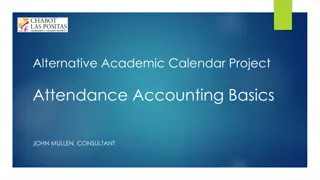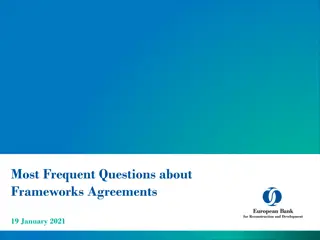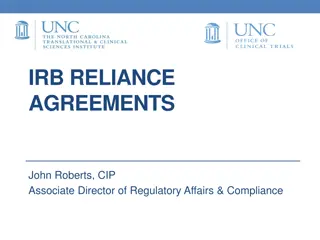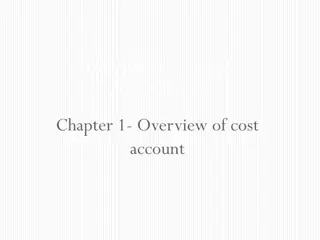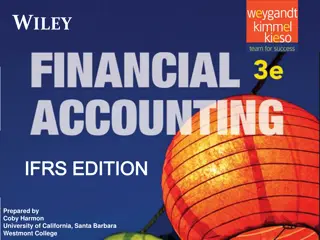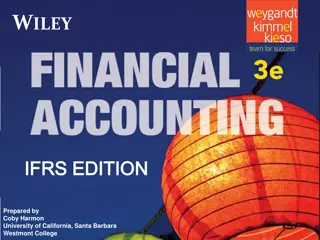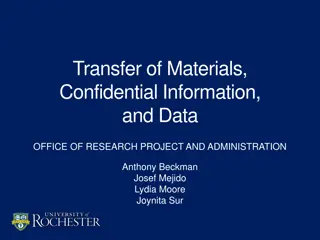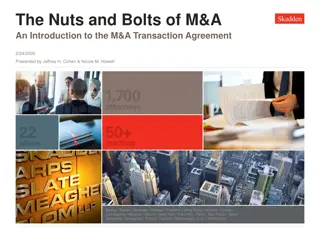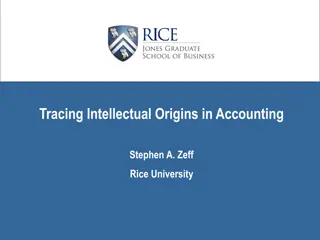Understanding Financial Accounting Concepts in Royalty Agreements
This article delves into key concepts in financial accounting related to royalty agreements, such as minimum rent, redeemable dead rent/shortworking, recoupment of shortworking, strike and lock-out impacts, and surplus. Learn about these terms and their implications in royalty agreements.
Download Presentation

Please find below an Image/Link to download the presentation.
The content on the website is provided AS IS for your information and personal use only. It may not be sold, licensed, or shared on other websites without obtaining consent from the author. Download presentation by click this link. If you encounter any issues during the download, it is possible that the publisher has removed the file from their server.
E N D
Presentation Transcript
FINANCIAL ACCOUNTING BY JAHANAVI DEO DEPARTMENT OF COMMERCE M.L ARYA COLLEGE, KASBA
MINIMUM RENT Minimum rent is also known as dead rent, fixed rent, flat rent, rock rent and contract rent. A minimum sum guaranteed to the lessor by the lessee in order to make the lessor receive a minimum amount in any particular period, whether he derived any benefit or not, out of the right is known as minimum rent. It is a pre-determined rent and being disclosed in the royalty agreement where both parties have their consent. But if the production or sale is more than the minimum quantities previously agreed upon, then the royalty will be paid for the actual production. In other words, when the royalty is less than the minimum rent, the lessee pays the minimum rent, but when the royalty exceeds the minimum rent, royalty is payable.
REDEEMABLE DEAD RENT/SHORTWORKING Shortworking is that amount by which the minimum rent exceeds actual royalty. In other words, whenever the minimum rent is more than the actual royalty, the difference is called redeemable dead rent. Suppose, if a mine owner agreed to let the mine to a lessee for $ 20,000 for extraction of 1,000 kg. of coal and lessee actually produced only 600kg. of coal. Then $ 8,000(i.e. $20 X 400kg.) is known as shortworking. Shortworking is also called 'royalty suspense' by lessor.
RECOUPMENT OF SHORTWIRKING Generally, a royalty agreement contains a provision for carrying forward of shortworking with a view to adjust in the future in. In the subsequent years, such shortworking is adjusted against the surplus royalty. This process of adjustment is called recoupment of shortworking.
STRIKE AND LOCK OUT Strike is the outcome of labor force unrest in the work and it is being called by the labor unions. On the other hand, lock out is the right of the owner of the assets fulfilling legal necessities to close down the working site.But the result of both the cases show the production stoppage. In such event, the actual production could be badly affected and may not be sufficient to pay the minimum rent. Under such condition, the lessor may accept royalty on the basis of actual output. The provision to this effect must be presented in the royalty agreement.
SURPLUS If the actual royalty exceeds minimum rent, it is known as surplus. In the above example, suppose the output for a particular period is 1,500 kg. then $ 10,000 ($ 20 X 500) is referred as surplus.






